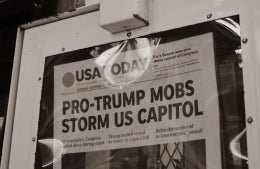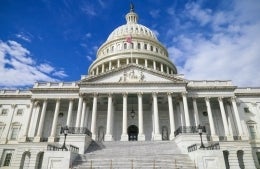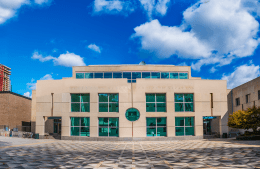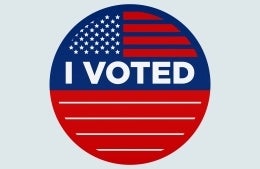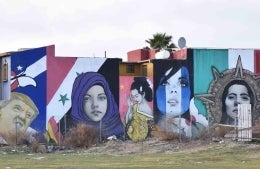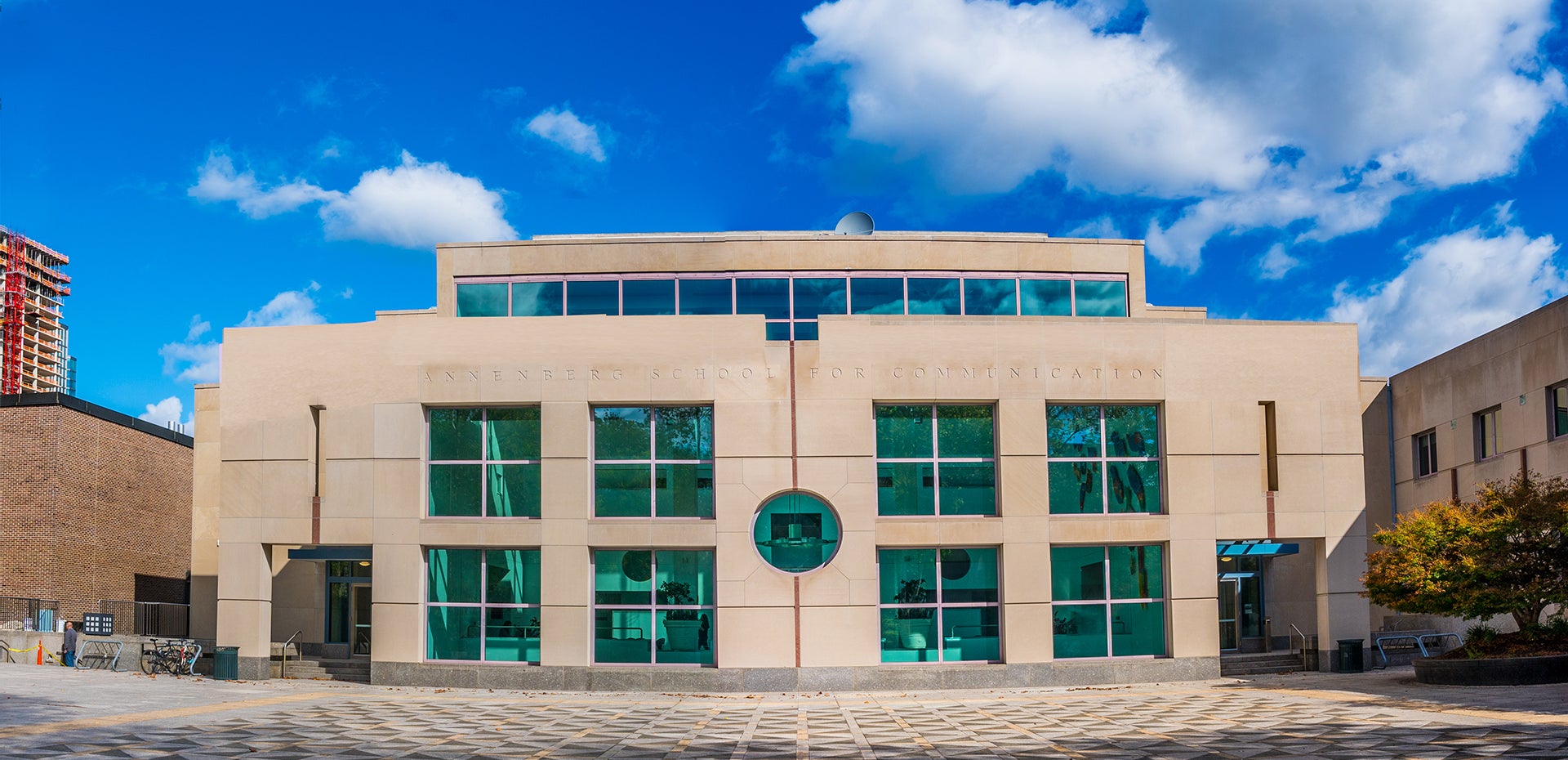Category
All Categories Alumni Call for Submissions Faculty News Graduate Student News In Memoriam News Presentations Research Undergraduate News
Research Area
All Areas Culture & Media Global Communication Health Communication Media Institutions Political Communication Science Communication Technology & Society
Center or Group
All Centers & Groups Addiction, Health, & Adolescence (AHA!) Lab Annenberg Center for Collaborative Communication Annenberg Creative Annenberg Public Policy Center Annenberg School for Communication Library Archives Annenberg Virtual Reality ColLABorative CAMRA Center for Advanced Research in Global Communication Center for Experimental Ethnography Center for Information Networks and Democracy Center for Media at Risk Center on Digital Culture and Society Communication Neuroscience Lab COMPASS Computational Social Science Lab Executive Program in Digital Media for Social Impact Health Communication & Equity Lab Institute for Public Service Institute for the Study of Citizens and Politics Media, Inequality & Change Center Milton Wolf Seminar on Media and Diplomacy Network Dynamics Group Peace and Conflict Neuroscience Lab Polarization Research Lab SAFELab Social Action Lab
Person
All People Adetobi Moses Albert R. Hunt Alex Tolkin Alon P. Kraitzman, Ph.D. Alvin Zhou, Ph.D. Alyssa (Allie) Sinclair, Ph.D. Amitanshu Das Anastasiya Miazhevich Andrew A. Strasser, Ph.D. Andrew Williams Andrew Wirzburger, Ph.D. Andy Tan, Ph.D., M.P.H., M.B.A., M.B.B.S. Anjali DasSarma Anna Gamarnik Antoine Haywood Ariel Schwartz, Ph.D. Arlene C. Fernández Arthur Z. Wang, Ph.D. Assil Frayha Aswin Punathambekar, Ph.D. Aviv Landau, Ph.D., M.S.W. Azsaneé Truss Baird Howland Barbie Zelizer, Ph.D. Ben Muzekari Benjamin Todd Jealous Bita Fayaz-Farkhad, Ph.D. Brendan Mahoney Brittany Zulkiewicz Calvin Isch Carlin Romano, J.D. Carolyn Marvin, Ph.D. Chloe (Jae-Kyung) Ahn Christiana Dillard Cienna Davis Craig Snyder Damon Centola, Ph.D. Damon J. Phillips, Ph.D. Dan Romer, Ph.D. Dan Romer, Ph.D. Danaë Metaxa, Ph.D. Daniel J. Hopkins, Ph.D. Danielle Bassett, Ph.D. Danielle Clark Danielle Cosme, Ph.D. Darin Johnson David Eisenhower, J.D. David Elliot Berman, Ph.D. David Grazian, Ph.D. David Lydon-Staley, Ph.D. David S. Cordero Deen Freelon, Ph.D. Desmond Upton Patton, M.S.W., Ph.D. Devo Probol Diana C. Mutz, Ph.D. Dolores Albarracín, Ph.D. Duncan J. Watts, Ph.D. Dwayne Booth Elaine Hanby Emilie Grybos Emily Falk, Ph.D. Emily Hund, Ph.D. Eran Ben-Porath, Ph.D. Eszter Zimanyi, Ph.D. Eugene Kiely Fallon Parfaite Farrah Rahaman Florence Zivaishe Madenga, Ph.D. Guobin Yang, Ph.D. Helene Langlamet, Ph.D. Hendrik Theine, Ph.D. Homa Hosseinmardi, Ph.D. Ify Okpali Ignatius G.D Suglo, Ph.D. Ingrid Burrington Javier Garcia-Perez, Ph.D. Javier Granados Samayoa, Ph.D. Jeanna Sybert Jeesung Ahn Jeff Pooley, Ph.D. Jennifer Rothman Jenny Chio, Ph.D. Jenny Lee Jessa Lingel, Ph.D. Jessica Fishman, Ph.D. Jessica McDonald Jiaxi Wu, Ph.D. Jingyi Gu, Ph.D. John B. Jemmott III, Ph.D. John Cheney-Lippold, Ph.D John L. Jackson, Jr., Ph.D. José Carreras-Tartak Joseph N. Cappella, Ph.D. Joseph Turow, Ph.D. Juan Llamas-Rodriguez, Ph.D. Julia Cope Julia Ticona, Ph.D. Kallahan V. Brown Kate Okker-Edging Katerina Girginova, Ph.D. Kathleen Hall Jamieson, Ph.D. Katie Rawson, Ph.D. Ken Winneg, Ph.D. Ken Winneg, Ph.D. Kevin B. Johnson, M.D. Kim Woolf, Ph.D. Kinjal Dave Kirsten O. Lydic Kyle Cassidy Laetitia Mwilambwe-Tshilobo Leah Seppanen Anderson, Ph.D. Lia Howard, Ph.D. Litty Paxton, Ph.D. Liz Hallgren Lizzie Martin Louisa Lincoln Lucila Rozas Malav Kanuga, Ph.D. Man-pui Sally Chan, Ph.D. Mariela Morales Suárez Marjorie Margolies Marta R. Durantini, Ph.D. Mary E. Andrews, Ph.D. Matt Parker, Ph.D. Matthew Brook O'Donnell, Ph.D. Matthew L. Conaty Matthew Levendusky, Ph.D. Melissa B. Skolnick-Noguera Mengyang Zhao Michael E. Mann, Ph.D. Michael X. Delli Carpini, Ph.D. Mohammed Rashid, Ph.D. Monroe Price, J.D. Murali Balaji, Ph.D. Murali Balaji, Ph.D. Natasha Williams Neil Fasching Nicholas Dias Nicole Cooper, Ph.D. Nidah Mohammed Nya Mbock Olivia González, Ph.D. Oscar H. Gandy, Jr., Ph.D. Patrick E. Jamieson, Ph.D. Pawel Popiel, Ph.D. Qijia Ye Riana M. Brown, Ph.D. Robert C. Hornik, Ph.D. Robin Wagner-Pacifici, Ph.D. Rosemary Clark-Parsons, Ph.D. Ryan Tsapatsaris Sam Wolken Samantha Dodd Sandeep Mertia, Ph.D. Sandra González-Bailón, Ph.D. Sanjay Jolly Sara Reinis Sarah Banet-Weiser, Ph.D. Sarah J. Jackson, Ph.D. Sarah Ropp, Ph.D. Scott Reich, J.D. Shana Kleiner, L.M.S.W. Shane Sheehy Shawn Patterson Jr., Ph.D. Shengchun Huang Silvia Téliz Sim Gill Siva Mathiyazhagan, Ph.D., M.S.W. Sixiao (Vivian) Liu, Ph.D. Sophie Maddocks Staci Jones Stephanie L. DeMora, Ph.D. Tara Liss-Mariño, Ph.D. Taylor L. Smith Tejas Harad Thandi Lyew Tian Yang, Ph.D. Timothy Dennys Steven Dorr Timothy Hyde, Ph.D. Tom W. Etienne Tukufu Zuberi, Ph.D. Tyler Leigh Valentina Proust Victor Pickard, Ph.D. Vincent Price, Ph.D. Vishwanath E.V.S. Waldo Aguirre Wazhmah Osman, Ph.D. Xanni Brown, Ph.D. Xi Shen, Ph.D. Xinyi Wang Yingchuan Qu Yoel Roth, Ph.D. Yphtach Lelkes, Ph.D. Yue Li, Ph.D. Zane Griffin Talley Cooper Zehra Husain, Ph.D.
Topics
All Topics Activism & Social Justice Attitudes & Persuasion Behavior Change Big Data Data Privacy Digital Culture Film & Mediamaking Gender & Sexuality Gig Economy International Media Journalism Media Effects Media History Media Policy Networks Neuroscience Partisanship & Polarization Peace & Conflict Politics & Elections Public Health Race & Ethnicity Social Media Tobacco & Substance Abuse Visual Communication

